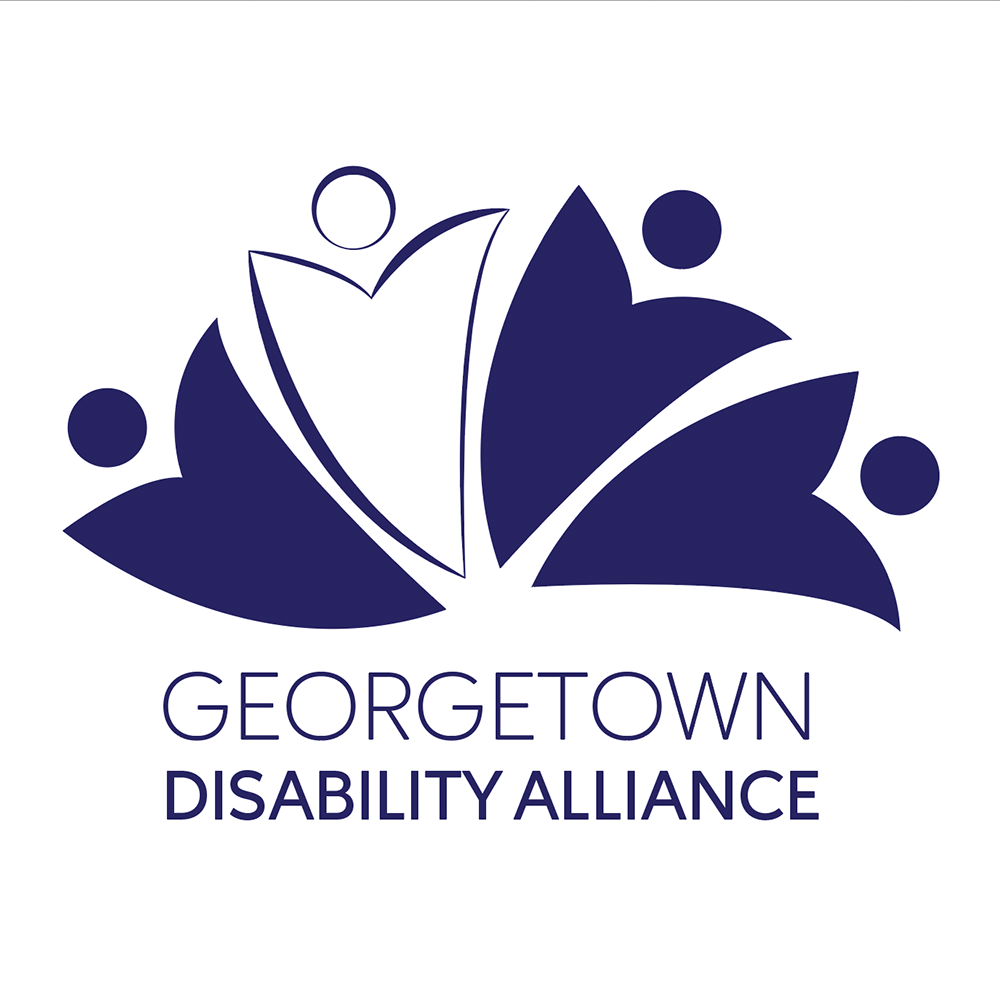The Georgetown University Student Association recently reignited a push to establish a university-funded space for disabled students on campus.
GUSA’s Accessibility Policy Team will submit a proposal to university administrators in upcoming meetings, outlining the need for a Disability Cultural Center. A DCC would collaborate with other advocacy and diversity-centered organizations both on campus and in the greater Washington, D.C. area, and it would coordinate educational, social, academic and support programming for disabled students and allies, according to the proposal.

“Students with disabilities have been needing and striving for an institutional community dedicated to the lived experiences of disabled people to encourage socialization and community building around these shared experiences for over a decade,” the proposal reads.
The goal of a DCC is to create a space in which disabled students feel safe to discuss their disabilities and nondisabled students can learn about and engage with disability culture, according to Gwyneth Murphy (SFS ’23), a member of GUSA’s Accessibility Policy Team.
“Disabled people have an enormous culture, and it’s how they thrive, and it’s how they allow themselves to be healthy — connecting with other people who understand that culture,” Murphy said in an interview with The Hoya. “And that’s something that is absolutely missing from our campus.”
The proposal, which has been shared on social media platforms including Twitter, Instagram and GroupMe, is accompanied by a petition addressed to university administration. The petition has garnered over 1,000 signatures as of Jan. 20.
The Accessibility Policy Team plans to use the petition to demonstrate community support for the initiative during meetings with university administrators over the coming weeks, according to Murphy.
The university continues to consider accessibility for all students in its planning, but it appreciates ideas from students and the community, according to a university spokesperson.
“We have made significant progress expanding accessibility and it remains at the forefront of campus planning for facility improvements and construction. In addition to our overall efforts to improve campus accessibility, we respond to special student needs as they arise, as well as soliciting input from students with disabilities on these issues,” a university spokesperson wrote in an email to The Hoya.
Lydia X. Z. Brown (COL ’15), who was the GUSA Undersecretary for Disability Affairs and co-founder of the Washington Metro Disabled Students Collective, led the advocacy for a Disability Cultural Center at Georgetown in 2012 and called for its establishment as one of five steps the university could take to combat ableism in a 2014 Viewpoint in The Hoya.
Although the number of disability cultural centers on college campuses has risen, Georgetown still has yet to develop a DCC for students, according to Brown.
“When I started this work, there were only three disability cultural centers in existence in the country,” Brown said in an interview with The Hoya. “Other colleges began creating them and now there are more — not a whole lot — but there are more around the country now than there had been at the time I started this work. Georgetown is still not among them.”
Many universities across the country have established DCCs in recent years, including Syracuse University, University of Illinois at Chicago, Duke University and Stanford University. These centers foster community while providing important programming and accomodations, aspects that a Georgetown DCC should include, according to the proposal.
If the Georgetown administration does not accept the proposal for a DCC, the university will fail to live up to its ideals, according to Brown.
“Georgetown still has an opportunity to be what it had always claimed to be: innovative, a leader, forward thinking, on the cutting edge. But it has to move quickly, or it will lose that opening,” Brown said.
Georgetown’s Academic Resource Center currently provides accommodations for disabled students that facilitate equity and access, according to Joseph Fisher, the director of the ARC.
“Access challenges affect a broad swath of our community and range from the need for new or different academic accommodations for students with disabilities and learning differences, to disparities in access to technology, to new responsibilities for dependent care,” Fisher wrote in an email to The Hoya.
The ARC is working collaboratively with other organizations to provide accessibility resources for faculty, according to Fisher. These organizations include the Center for New Designs in Learning and Scholarship, which promotes new technologies and teaching strategies, and the Georgetown Disability Alliance, a student group that aims to encourage accessibility and education on disability.
Students have struggled, however, with access to ARC resources and support from ARC staff recently, as the center continues to grapple with underfunding and a universitywide hiring freeze.
A DCC would provide much needed resources to disabled students on campus, including advocacy, career advice and many services the ARC is unable to provide, according to Dominic DeRamo (COL ’23), a researcher for GUSA’s Accessibility policy team.
“There is so much room for improvement within the Academic Resource Center, within the medical housing application process, and filing a bias report or discrimination report,” DeRamo said in an interview with The Hoya. “Those barriers are actually what I find most challenging at times.”
A DCC is necessary at Georgetown, so disabled students are able to receive direct support from the university, according to Murphy.
“It has been a long battle,” Murphy said. “I think oftentimes because there is no center, all of the advocacy falls on the students’ shoulders. When you’re already dealing with a disability, you’re trying to get access to resources, you’re doing that all on your own with no support, no guidance at all. That is way too much to be asking students for.”














